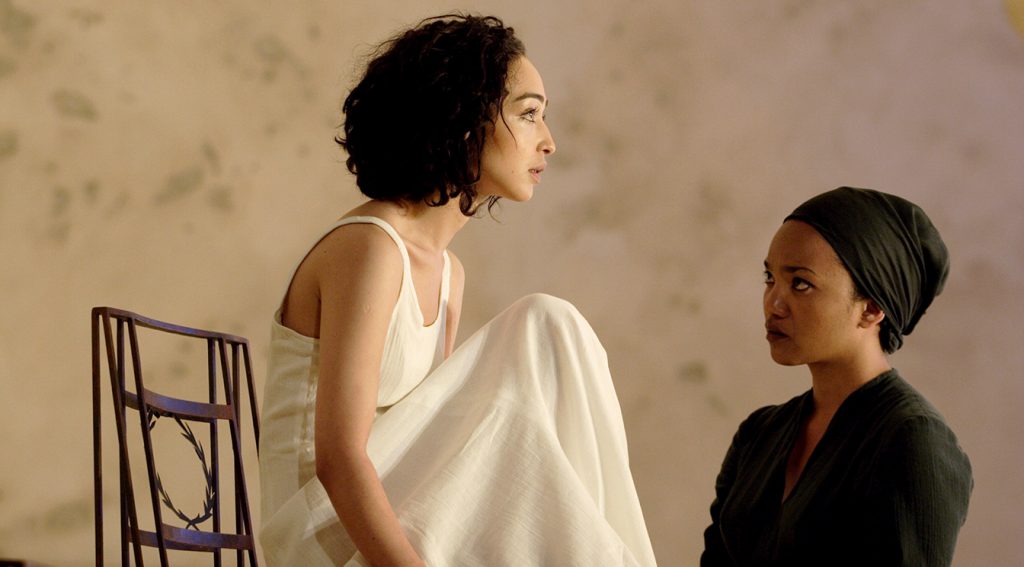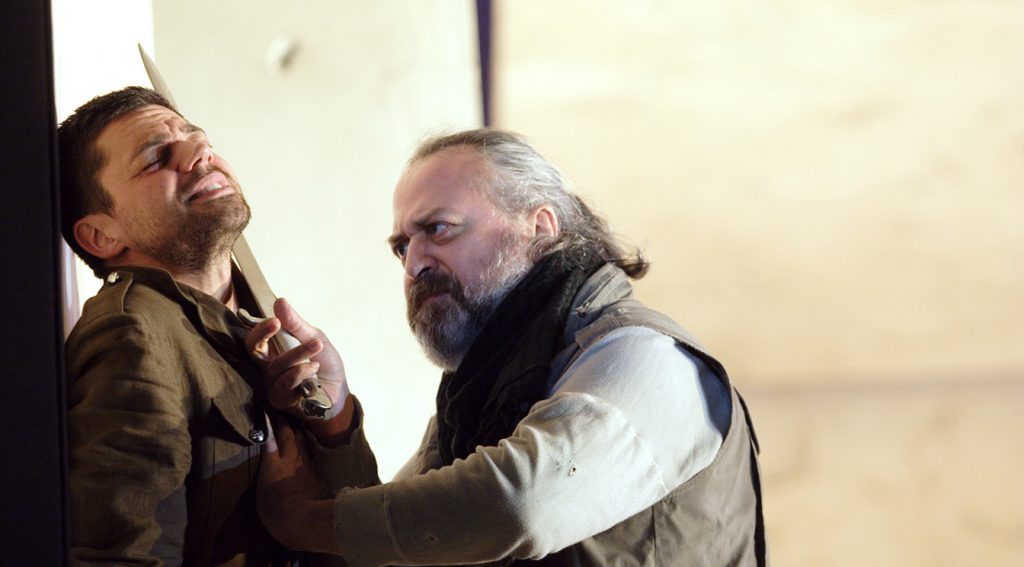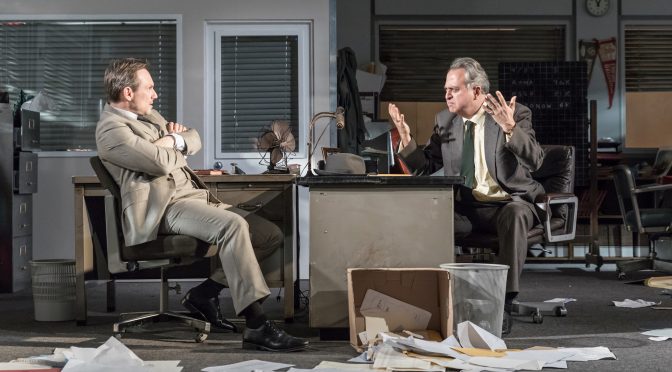After its generous offering of shows for donations during the first lockdown (thanks again) the National Theatre now has a streaming service. It’s a great deal: choose a monthly subscription, with exclusive content, or rent shows individually. And the broadcasts are those for cinemas, so of the highest quality. Joining up sounds like a good New Year’s Resolution to me.
The first show
There’s plenty of choice – more will be added each month – but I’ve started at the beginning, with the first NTLive broadcast dating from 2009. Nicholas Hytner’s production of Jean Racine’s version of the Phèdre myth, with Theseus’ wife in love with his son, is a show I’ve long regretted missing.
The first triumph for the production is Ted Hughes’ text. The script is packed with memorable lines. This is glorious poetry. The story is clear and the telling captivates the ear, no matter how complex the psychology.
Hytner’s direction matches Hughes’ direct appeal. There’s nothing fancy here – it’s not needed. Nothing distracts from the characters’ passion and turmoil, with their flaws and the “inexorable Gods” balanced as explanations of why tragic events unfold.
Famous faces
Helen Mirren takes the lead role and gives a performance that deserves to be described as mythic. Phèdre is “the monster in this riddle”, a “diabolical” woman, who can be truly scary. But it’s Phèdre’s agony that Mirren makes palpable. The “constellations of torment” over love for her stepson Hippolytus are various. There’s guilt aplenty and it’s plenty moving. At first, Phèdre is a “dying woman wanting only to die”, and Mirren conveys this exquisitely. But there’s also anger – an address to Venus is magnificent. As Phèdre becomes a “woman in a frenzy”, speculation escalates as to what will come next.

Phèdre is Mirren’s show. But there’s a superb supporting cast here. The play’s love triangle, with Hippolytus enamoured by enemy of the state Aricia, is not to the fore but makes a strong role for Ruth Negga. Aricia’s “thrill” at conquering the chaste Hippolytus gives her character an edge. While Dominic Cooper’s Hippolytus has presence (his chemistry with Negga is great and he’s generally good with torment!) there are some shortcomings. A description of him as “the most loveable of men” doesn’t match Cooper’s performance and even the character’s oft-repeated flaw of pride isn’t conveyed.
Back to the best bits. A trio of attendants populate the play, commenting on or contributing to psychology or action, and all three performances are fantastic. Margaret Tyzack is remarkable as Phèdre’s nurse Oenone, her complete dedication rendered utterly convincing. Both John Shrapnel and Chipo Chung, attendants of the younger lovers respectively, admire and admonish by turns. These roles are effective in making us question how much Phèdre is really “the cause of everything”.

Gods aside, there are moments when each of those in power seems easily played. And nobody appears more manipulated than the ‘hero’, in classical terms, of the piece – the legendary Theseus. Stanley Townsend manages to make the king successfully human. Cursing his son, and calling in a handy favour from Poseidon, is an electric moment that reflects the dichotomy surrounding personal motivations and divine interventions perfectly.
Up next…
Shows missed and much-loved productions that can be watched again have a place on NTathome. Olivia Williams’ play Mosquitoes was tricky to get a ticket for (it stars Olivia Colman), so is next on my list. Dara, Othello and The Cherry Orchard are all excellent shows I’m tempted to revisit. Once again, the National Theatre is going to be a huge help during lockdown.
Photos by Catherine Ashmore



